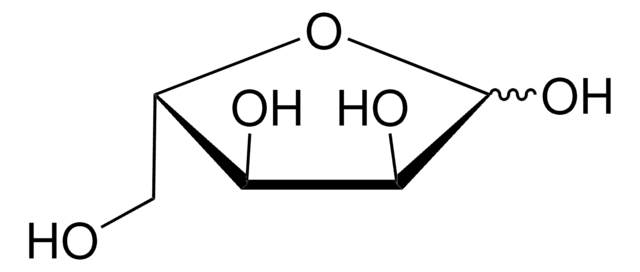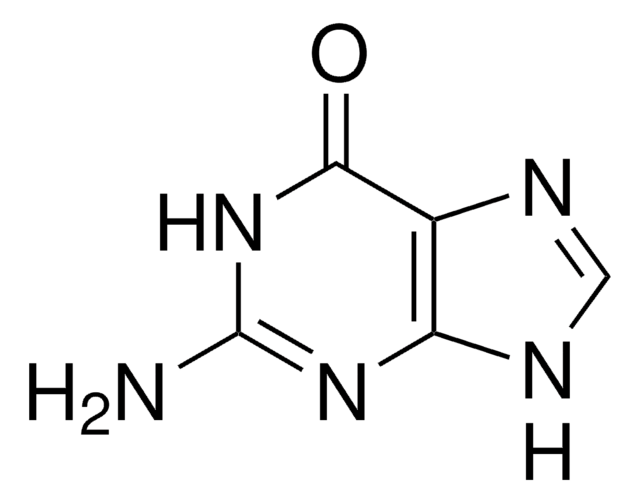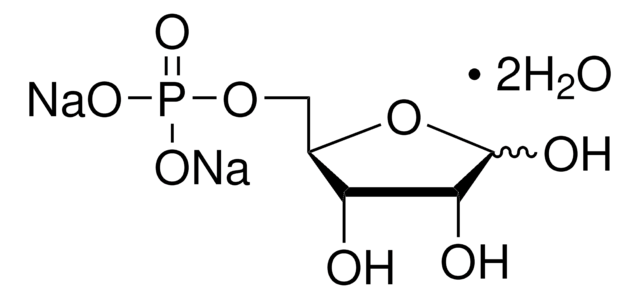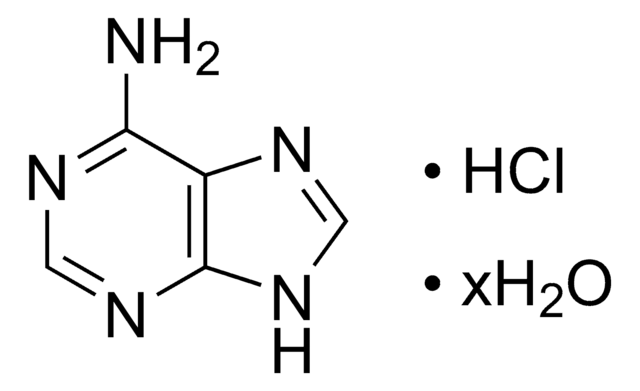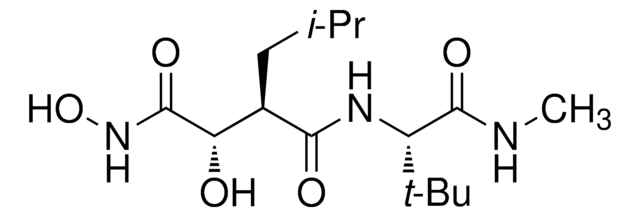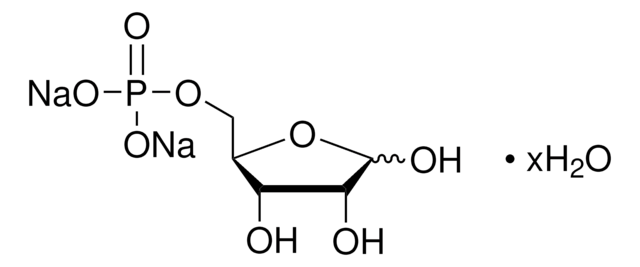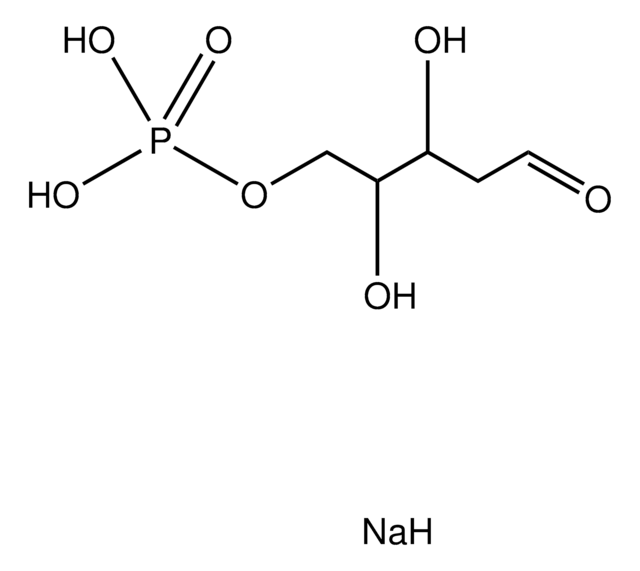Wichtige Dokumente
R9629
D-(−)-Ribose
suitable for cell culture, BioReagent
About This Item
Empfohlene Produkte
Biologische Quelle
microbial
Qualitätsniveau
Produktlinie
BioReagent
Assay
≥99% (GC)
Form
powder
Methode(n)
cell culture | mammalian: suitable
mp (Schmelzpunkt)
88-92 °C (lit.)
Löslichkeit
water: 100 mg/mL, clear, colorless to faintly yellow
Lagertemp.
2-8°C
SMILES String
OC[C@@H](O)[C@@H](O)[C@@H](O)C([H])=O
InChI
1S/C5H10O5/c6-1-3(8)5(10)4(9)2-7/h1,3-5,7-10H,2H2/t3-,4+,5-/m0/s1
InChIKey
PYMYPHUHKUWMLA-LMVFSUKVSA-N
Suchen Sie nach ähnlichen Produkten? Aufrufen Leitfaden zum Produktvergleich
Anwendung
Biochem./physiol. Wirkung
Eignung
Lagerklassenschlüssel
11 - Combustible Solids
WGK
WGK 3
Flammpunkt (°F)
Not applicable
Flammpunkt (°C)
Not applicable
Persönliche Schutzausrüstung
Eyeshields, Gloves, type N95 (US)
Hier finden Sie alle aktuellen Versionen:
Besitzen Sie dieses Produkt bereits?
In der Dokumentenbibliothek finden Sie die Dokumentation zu den Produkten, die Sie kürzlich erworben haben.
Kunden haben sich ebenfalls angesehen
Unser Team von Wissenschaftlern verfügt über Erfahrung in allen Forschungsbereichen einschließlich Life Science, Materialwissenschaften, chemischer Synthese, Chromatographie, Analytik und vielen mehr..
Setzen Sie sich mit dem technischen Dienst in Verbindung.

